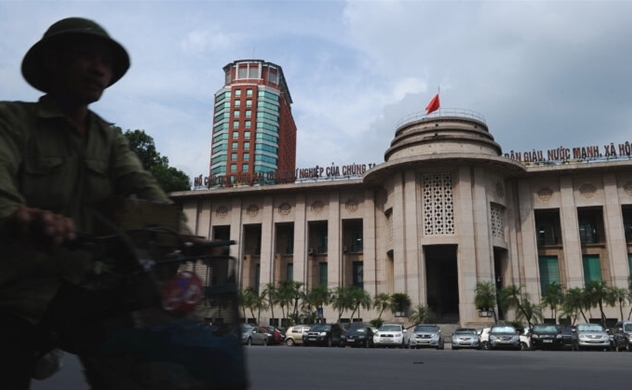Vietnam seeks low market interest rates amid a rare rate increase.

A cyclist rides past the State Bank of Vietnam headquarters in downtown Hanoi on July 6, 2012. (Hoang Dinh Nam/AFP via Getty Images)
The refinancing rate and deposit rate were each raised by 100 basis points to 5% and 3.5%, respectively. The dong deposit rate cap and the overnight interbank lending rate were also raised, according to a State Bank of Vietnam
The SBV will persuade banks to enhance their technology, improve governance effectiveness, reduce expenses, and even consider lowering their commercial lending interest rates in specific key business areas in order to maintain stable lending interest rates.
In a separate statement, the central bank said it would manage the dong flexibly and appropriately use other monetary policies to stabilize the money market, control inflation, and maintain macro stability. However, it did not go into detail about the specific actions it might take.
the Dong is at a record low after dropping for a ninth straight day to 23,712 per dollar on Thursday, the lowest since at least 1993, according to statistics gathered by Bloomberg.
The central bank set the dong reference rate on Friday at 23,324, which is the lowest level since at least 2005. Vietnam permits a 3% spread on each side of the rate for currency trading.
According to Phung Trung Kien, founder of Vietnam Holdings Inc., asset management and investment consulting firm, the SBV's action was "in line with the trend of monetary tightening taking place globally; the currency has been weakening and inflation is under pressure." All this has put more pressure on the central bank to hike this time.
After mostly relaxing monetary policies over the preceding 10 years, the SBV last moved in September 2020 when it reduced rates to support the economy amid the epidemic.
Source: Bloomberg

 TIẾNG VIỆT
TIẾNG VIỆT 

_131447820.png)














